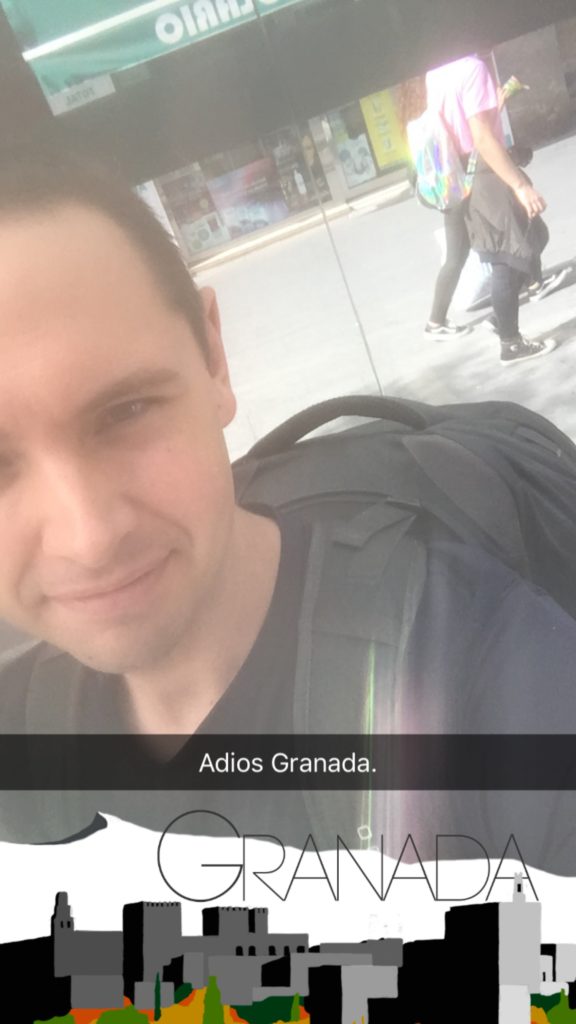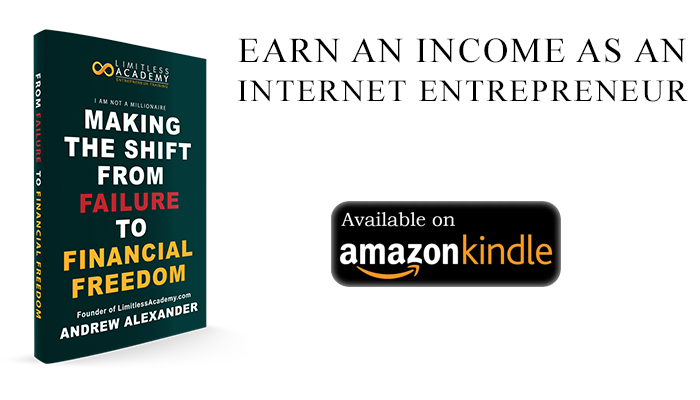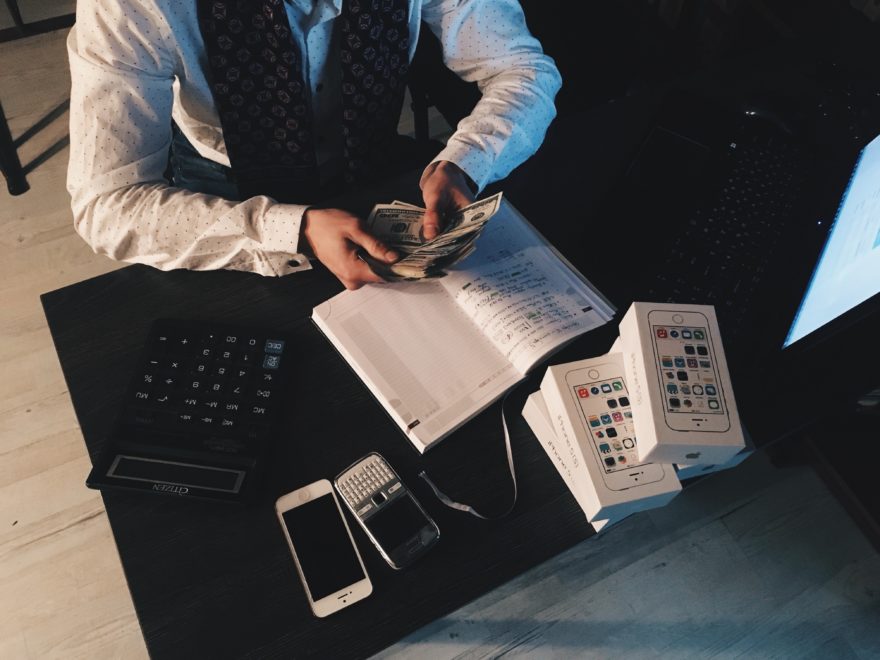During hard times, the natural inclination is to find a way to make more money.
But that’s only half of the equation.
No matter how much money you make, you’re always going to go broke unless you do this one thing first.
Let me paint a picture for you…
Imagine pumping $50 of gas in your car only to find the tank drained completely empty by morning.
You fill up the tank with another $50 worth of gas.
By the morning, it is empty again.
If you find yourself struggling financially, no amount of money will save you until you learn how to plug the leaky holes that are draining your bank account first.
How to Hold Onto Your Money During a Financial Crisis or Recession
My name is Andrew Alexander and as an entrepreneur I’ve made well over 6-figures from my businesses over the years.
Every great period of sales was immediately followed by excess spending that drained my hard-earned income.
When times were good, things were great.
Back in 2015 when an income stream was unexpectedly cut off, the bills piled up, my bank accounts got low, and I learned my lessons in the most painful ways possible.
I’ve been through recessions and times of extreme financial scarcity before.
And I’m sharing my lessons learned to make sure you can make it through hard and troubling times, by protecting yourself financially.
And it starts by cutting your expenses first.
1. Clearly See What You Are Spending
Back during my days of financial scarcity, I was literally terrified to see the balance of my bank account, only seeing how low it really was when I tried to buy a coffee and it came back as transaction declined.
While many of us don’t want to face our problems in life, we’ll never take control of our money until we clearly see where our money is being spent.
This is especially true during times of economic instability and crisis.
I’m writing this in April 2020 during the middle of the Coronavirus Pandemic. Unlike the $250 I had to my name during the 2008 recession:
- I have more money in cash reserves than any other time in my life.
- I have a stable, but reduced, monthly income, and
- I feel like I’m in a position to ride out this wave, even if all my sales dry up and I am forced to live off of savings.
But even with this, I spent a few hours tonight going through all my credit card and bank statements to see what I am spending money on. In total, I had about 7 or 8 accounts to go through, not including my business ones.
I paid special attention to all automatic monthly/yearly charges.
- Skype VOIP U.S. Phone Numbers,
- A dozen or so GoDaddy domain names that I probably should have never bought,
- Health insurance,
- Cell phone,
- Audible.com monthly credits, etc.
I created a Microsoft excel sheet and wrote out what I was spending things on monthly.
In addition to the monthly recurring bills I pay, I also look at the other things I spend money on – in the last 2-3 months.
Outside of this time of crisis, I remember listening to a billionaire talk about how he doesn’t put restrictions on his wife’s spending…but he made sure that she knew exactly how much she was spending when she did.
If she bought a $1,500 dress – he was ok with it.
If she bought a pair of jeans for $38.50, but she didn’t know how much she spent, it was a problem.
It’s about financial discipline and clearly seeing how much you are actually spending.
The number one reason spending gets out of control is when you don’t have a clear look at it.
Of all the points I talk about in this article, I would say this is the most important one that many people don’t pay attention to.
Before moving on, look at your credit and debit card statements and write down on a piece of paper exactly what you’ve been spending.
Include cash transactions from memory too.
2. Cancel All Unnecessary Expenses
Yes, I said all.
While I would love to get another Audiobook from Audible.com on that $14.95 monthly credit and I am in a financial position to afford it – I made a decision to cancel that off the list.
I log into my account, I cancel my membership, and I reduce my unnecessary expense for this month.
I repeat this process with everything that is and unnecessary expense on the list. Whether it’s recurring or one-time purchases.
The reason I do this is less about the dollar amount.
And everything to do with building financial discipline.
I’m sure you’ve read countless stories of rappers or athletes going broke because even though they make $1 million this year, they wind up buying a mansion and exotic sports cars, still spending more than they earn.
While I’m not a millionaire yet, I’ve had similar experiences in my life.
It’s a common trait for expenses to increase in proportion to increases in income. The old stereotype is that a family goes out and celebrates the husband’s big work promotion by buying a new car, vacation, or a boat.
If you can’t control your spending now – you won’t have the discipline to do so even if you go out and get that higher paying job or raise you are hoping for to solve all of our problems.
Practice minimalism – you’ll thank me later if you did.
3. Minimize Costs on All Necessary Expenses
In this day and age, there are some things that we can’t cut out and we need to still pay for.
- Food
- Cell phone service,
- Internet/Utilities,
- Rent, etc.
In 2018, I made the decision to leave the United States an spend a number of years traveling the world.
- I sold my car (got rid of my $365/month car loan),
- $71/ month insurance was gone along with that,
- When I moved to South America, rent and utilities went down from my typical $800 to $200 per month.
- My cell phone bill dropped from $75 to $9 per month.
Whereas I used to eat a Veggie Burrito from Chipotle 5-10 times per week ;), I could make something similar for a fraction of the price by buying rice, beans, and fresh vegetables from the market.
While I don’t believe anybody should compromise health in the name of saving some money – do you really need that $8 TV dinner or could you save money and be healthier by bulk cooking some quinoa and fresh veggies for the week?
In these times, you’re going to have to make some serious changes if you expect your financial stability to change.
- How can you do to spend less on things you need like food/groceries?
- Can you share expenses by moving in with a friend or family member?
- Do you really need to drive your car everywhere you go or could you get some extra exercise by riding your bike to a friend’s house a couple days a week?
- Can you get rid of a high car loan, mortgage, or rent by upgrading into something that is cheaper and more affordable?
For many years, I practiced minimalism.
In 2016, I survived in Europe just fine for 3 months living out of nothing more than a 40 Liter travel backpack.

Before that, I needed my house filled with large couches, televisions, video game systems, blenders, toasters, etc.
Whatever you think you need, you need less of it (or maybe not at all).
Whatever you can spend money on, you can probably find a way to spend less of it (cheaper cell phone plan, generic bag of pasta instead of the name brand).
When you first decide what expenses are necessary and which ones are not – you can choose to eliminate things or find a way to spend less on them.
Andrew Alexander
4. What to Do About Existing Debt?
Years ago, when my bank account hit the negative, I was hit with not one but two $35 overdraft fees in a single day – I made the decision to never have my bank account go anywhere near zero again.
And then a debt collector called.
They were aggressive, they used strong language, and had me filled with fear in a panic that made me feel like I needed to pay the full amount of the debt NOW or else my financial future would forever be destroyed.
What do I do?
Do I pay the debt and drain my cash reserves or do I hold onto the cash in the account and have the debt looming over my head for the foreseeable future?
There are pluses and minuses for both decisions and depending on your unique situation, the answer is up to you.
The first time the debt collector called, I paid $168, which put my close to the negative – and I remained trapped and stuck where I was because the money I was finally starting to make was being drained as fast as it came in.
So I decided to hold off on paying what I owed until I had the cash reserves to cover me either way.
A few years later, I received a letter from that debt collector saying that I could pay off my balance for just $275 more.
I called up the number on the notice and paid off the full amount right away.
A number that was once a significant amount for me was just a small drip from my bank account. A payment that gave me he peace of mind that my debt was over with and finally taken care of.
Insights from going through this experience:
- Never use debt to pay other debt – One time I took out a credit card to buy a computer only to flip it to a Russian mobster for 50% of the price just to get quick cash. I was now stuck with a new line of debt after using the cash to pay for rent. Don’t do what I did no matter how much it seems like a good idea at the time. If your bank account is being drained or your debt is piling up – you’re digging your own grave and it’ll be harder to pull yourself out of later when things get worse.
- Be strong and don’t cave in – When you communicate with debt collectors, they will be aggressive and their job is to get your money now. If you cave in easily, you could easily be depleting your financial reserves when you’re not in a safe position to do so.
- Communicate openly – Instead of ignoring the debt tell them that you don’t have an income now, you intend to pay it, but you will need a number of months before you can make a payment. Or if you can afford a smaller amount, pay little-by-little if that works for your budget at the time.
- Stop adding more debt – Similar to the first bullet point. If you are needing to use more debt to cover you basic living expenses and heeding the advice of this article is not enough to put you into positive cashflow, the solution is an income issue that I’ll talk about in a future post.
5. Hide Money from Yourself So You Never Touch It
Just like all the other advice in this article, this is my personal opinion. There are more than one way of doing things and this might not be the best option for you.
Whenever I ran low on money in the past, I got resourceful and found a way to make things work. If I had cash available to me, I would spend it.
But what if in those moments, I had a $10,000 emergency fund that I didn’t physically have access to spend?
In the same way I was resourceful when cash was low and found ways to make things work – I could do the same thing but still have the emergency reserves that were there in case of a serious extreme emergency beyond the point of sleeping on a friend’s couch or selling my stuff on Craigslist.
When I was going pulling myself out of hard times financially and I had a little bit of excess income, I opened an account that I had access to put money into – but not take money out of.
The checking account had no working debit card attached to it and I connected that account to my PayPal account. In addition to this, I opened up secured credit cards that required a deposit – and had those cards mailed to my parent’s house thousands of miles away so I couldn’t rack up debt on those cards.
If you’re not familiar with secured credit cards, you can pay a $1,000 deposit that is put in a locked savings account and the card allows you to charge up to $1,000 on it – with the $1,000 being secured to pay the coard company if you default on your debt.
But for my situation, it meant that I had $2,300 cash locked up in these cards. I could get access to the cash if I closed the account, but it would take 4-8 weeks to get my money. Just another way of putting away money where I couldn’t touch it.
When I earned money through my business, it came into PayPal. When I made $400 from a contract, I would immediately transfer $100 of that to that account. When I was running low on cash, I wanted to pull that money out but I physically couldn’t.
So unlike the past, I broke the habit of always going towards zero.
Over time as my income increased, I would put more and more away.
When I made $3,000 from a consulting contract – I would instantly transfer $2,000 into that account.
Eventually, when I had a lot of money sitting in an account doing nothing for months on end, I decided to take half of it and invest it in a new business – turning cash sitting around into inventory that I could earn a positive return on investment with.
But until I had more than 2 years worth of living expenses saved up in emergency funds, I made sure to never touch it.
And I didn’t… because I set up a system where I physically couldn’t.
While you may be in a position where you need money today, the cycle will continue so I strongly suggest to follow the advice of this article to cut expenses, read my future articles about how to increase your income, and realize that we are building a cash reserves for 6 months, 1 year, or further into the future so you’ll never be broke again.
6. Create a Budget & Stick to It
At the beginning of this article, I told you to take a clear look at your expenses. If you’re flying blind, you’re going to crash and burn.
But when you know exactly how much you are spending, you can plug the leak in your gas tank so you don’t waste unnecessary dollars that disappear from thin air.
The next step is to create a budget of how much you are going to spend on the necessary expenses, and stick within that price range.
In times of crisis and recession, my advise is to get this number as close to zero as possible.
Give up the luxuries.
- Drink cheap instant coffee instead of Starbucks multiple times a week.
- Learn how better your health by spending 20 minutes to home cook meals instead of eating out.
- Go for a run, walk, or bike ride instead of spending $60 at the gym.
As an entrepreneur where I value value and wealth creation instead of pinching pennies, I would normally not give this advice.
I am not going to reach my financial goals of $23.8 million in the next 10 years by squeezing pennies here and there.
But this is about building financial discipline.
While spending $30 per month on your phone bill vs. $45 per month doesn’t seem like a lot, read the quote below…
“How you do anything is how you do everything.”
Unknown
By building this discipline now, this is where it makes the difference between buying a $150,000 condo in Mesa, Arizona and $450,000 home in the neighboring city of Scottsdale, Arizona before you’ve reached that “I made it” point and you can no doubt afford it.
Buying a used Toyota vs. flashing off a new BMW to look cool, only to deal with cashflow issues if things hit the fan later.
By following the principles here, you will be earning exponential gains in the future.
So in my mind, the world is going through a rough economic time.
In a number of years, there will be another side of it. Life may or may not be the same, but things will eventually get better.
So regardless if you are reading this to be more disciplined financially or if you really need to hold onto whatever cash you do have left – I hope this article will help you get through to the other side of whatever this is.
In the upcoming articles and videos I produce, I will talk about the other side of the equation and share advice on how to increase your income – whether it’s through employment in the 21st century or entrepreneurship.

